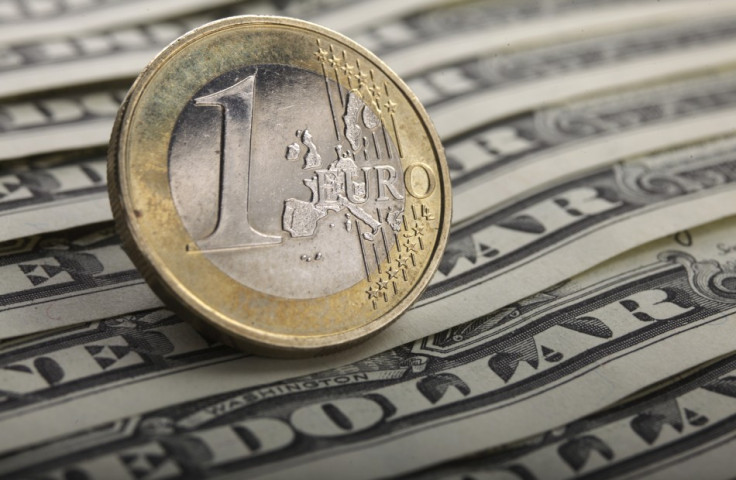Britain Must Support the Euro
OPINION

Alea iacta est - the die is cast. These words, uttered by Julius Caesar crossing the River Rubicon, resonate as much today as they did two thousand years ago, as the German parliament backs Chancellor Merkel's plan to rescue the single currency. The setting-up of a trillion Euro fund means we have now crossed into new and uncharted territory.
Like any contract, the devil is in the details. Political expediency resulted in a sticking-plaster solution to the paradox at the centre of the single currency's institutional framework; how can one bank run a currency when the seventeen governments using the currency are free to borrow and spend ad libitum? The Stability & Growth Pact was supposed to be a recipe to rustle up a cordon bleu meal but in reality, with countries making it up as they went along it ended up a case of "can cook-won't cook."
The theoretical model of single currency relied on fiscal transfers from richer to poorer states. With the Euro, this was ruled out, and we were told the much heralded Stability and Growth Pact would be the measure to co-ordinate fiscal discipline amongst Eurozone members. And on the 1<sup>st of January 1999 the Euro, the world's newest single-currency was born.
Fast-forward twelve years and the European Central Bank stands shell-shocked, surveying the ruins of the Greek economy and damage to Portugal, closely supervising the delicate rehabilitation of Ireland, and nervously watching two of Europe's largest economies, Italy and Spain. Even the status of France's coveted AAA status, while safe for the moment, is under review at the ratings agencies.
Sadly, like many cases of business and organizational failure, the symptoms have been visible for a long time. The audacity with which the Stability and Growth Pact was ignored is just the beginning of the story. Every single Eurozone country has at one time or another triggered the excessive deficit procedure, which only comes into play once the government deficit exceeds three percent of GDP. Any firm who broke its banking covenants in this manner would have been closed down. The initial fines due to be imposed for breaches of the pact terms were quietly shelved. No surprise that our banks rode roughshod over regulation as our political masters in Europe happily broke their own rules.
With the pact now redundant and replaced by straight fiscal transfers from Germany, France and other rich Eurozone countries, political elites across Europe are now facing up to the consequences of their "nod and wink" approach to rule-breaking.
Worse, the regulation of banks, which suffered from a global collective leaving of the senses amongst regulators and central bankers, was simply not fit for purpose. The lack of regulation from the ECB, and lack of moral authority from Europe's political leaders meant that Adam Smith's invisible hand became a redundant limb.
The continued focus of ECB policy on the big beasts of France and Germany meant that smaller peripheral economies were also ignored. This proved a disaster as Ireland, a small overheating economy with no tools to reduce inflation or labour costs, gradually lost its edge boosted by a property boom unparalleled in modern times. The country, which accounts for approximately one percent of Euro zone GDP, today relies on one third of the ECB's bank fund for its financial institutions.
Those in Britain who gloat at the problems facing the euro display an economic literacy on a par with Pyrrhus' military skills -- another victory in your war and we are undone. It's our job to protect our national interests and at this time; for better or worse that includes ensuring the euro does not fail. It was George Osborne who pointed out in the debate to approve the £3.125bn loan to Ireland that we export more to our near neighbour than Brazil, China, India and Russia put together.
We are now faced with a radical overhaul of how the currency of our single biggest trading partner is funded and managed. We must not forget that the euro is used directly or indirectly by around 500 million people, and remains the world's second reserve currency. While global headlines focus on the befuddled efforts of continental political leaders to solve the Euro crisis, the fact is that the trading businesses in most Euro zone countries remain strong. Last quarter Ireland recorded its largest ever trade surplus, and the large European economies remain structurally sound and not over-levered. It is bank exposure to risky sovereign debt that still presents the problem.
The Euro zone is our biggest trading partner, and it is in our interest that its future is safeguarded and succeeds. A bank may administer a currency, but ultimately its political leadership manages it. So far that political leadership has failed, starting with a lack of resolve to implement the Stability and Growth pact, and most recently a total failure to appreciate the true scale of the current problem. Finally, Merkel has stepped forward and presented what maybe a solution. Whatever our thoughts on the Eurozone, we in the United Kingdom are not passive-by standers. Quite simply, the Euro is now too big to fail. As for Greece, now that's another matter.
Christopher Moran is a senior figure in the City of London and Conservative supporter
© Copyright IBTimes 2024. All rights reserved.






